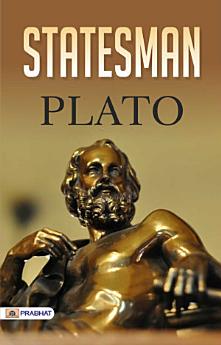Statesman: Statesman by Plato: Plato's Ideal Ruler - A Philosophical Treatise on Leadership.
About this ebook
***** remains a cornerstone of political philosophy, offering timeless insights into the challenges of ruling justly.
In this dialogue, Plato differentiates between a mere politician and a true statesman, arguing that ruling is an art that requires wisdom and virtue rather than sheer power. He introduces the concept of the ideal ruler, who governs not through laws alone but through deep understanding and philosophical insight. The text also explores the dangers of tyranny and democracy's flaws, urging readers to contemplate what makes an effective and just government. The meticulous discourse in
***** continues to inspire scholars, leaders, and students of philosophy, offering a rich analysis of governance that transcends time and place.
***** “A masterpiece of political thought! Plato’s
***** is an essential read for anyone interested in leadership and governance. His exploration of wisdom and the role of a ruler is both timeless and intellectually enriching. A must-read for those who wish to understand the deeper aspects of political philosophy.”
***** “Plato’s dialogue remains as relevant today as it was in ancient Greece. His insights into the nature of leadership and governance challenge conventional wisdom and provoke deep reflection. A brilliant and engaging work that deserves careful study.”
**** “A fascinating discourse on the philosophy of leadership. While some sections require patience due to their depth, the overall message is powerful and relevant. The distinction between a mere politician and a true statesman is especially thought-provoking.”
**** “An insightful read with profound ideas about governance and leadership. Plato’s arguments are compelling, though at times, the text can be dense. Still, this is a valuable read for anyone interested in political philosophy.”
*** “While
***** presents deep philosophical ideas, some parts feel overly complex and abstract. It is a rewarding read for those willing to engage with its intricacies, but it may not be for everyone. Nevertheless, Plato’s ideas on leadership remain significant.”








